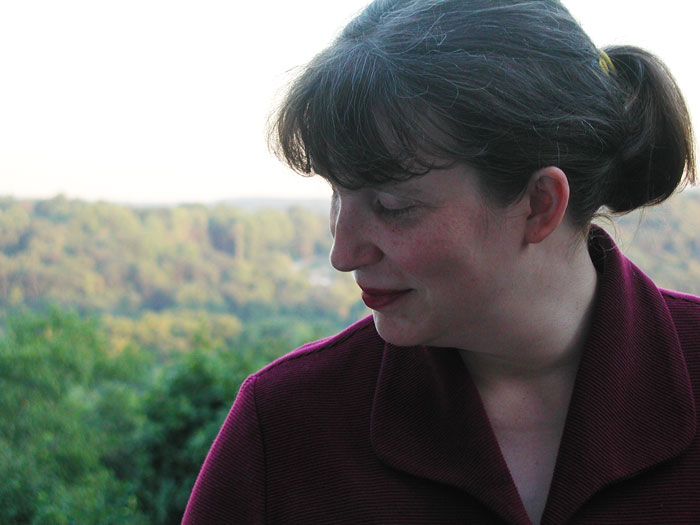

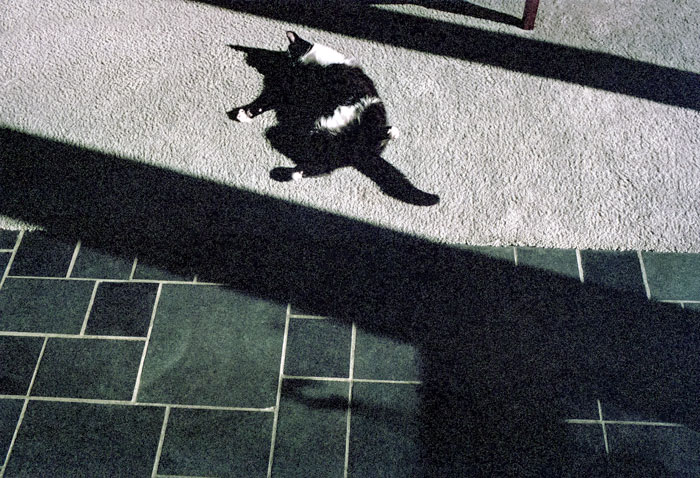
Cat in the sun
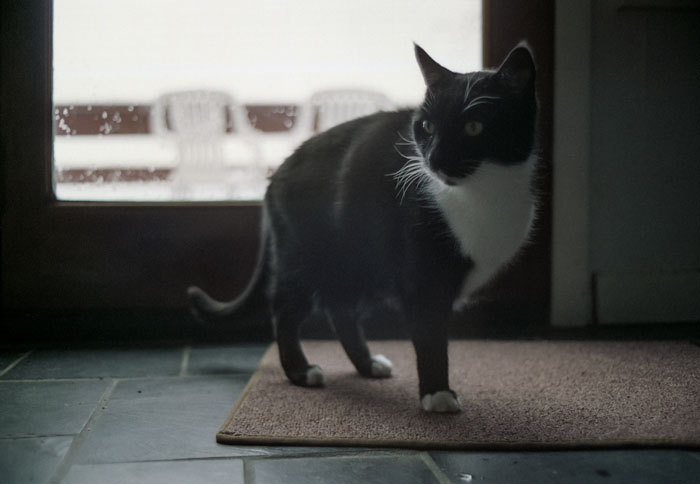
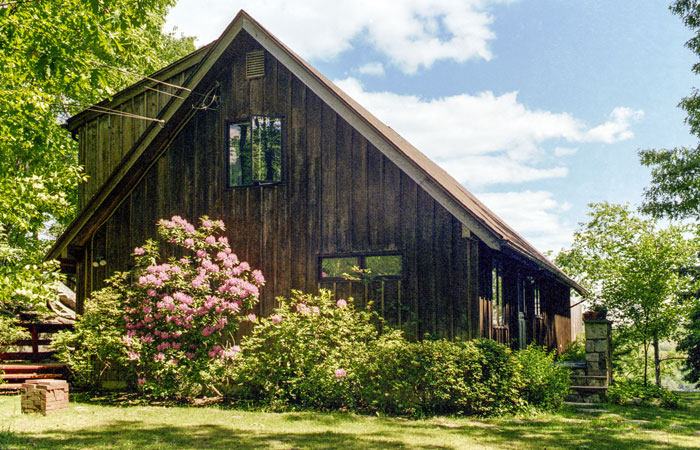
The new house in that first summer
During the nineties we began to tire of the East Village. It was no longer the place we'd been trying to reach all our lives, and we were no longer the people seeking that place. Neither of us was playing out anymore. C had left her job at Downtown Beirut to go back to school, and I'd somehow found myself in the middle of high-tech corporate life. We'd become tired of waking at 4:15 AM as drunk NYU students came home looking for the knob on the door. A young French girl across the hall who worked for Matador Records decided to start a band; they practiced in the apartment and East Village walls were paper-thin. "But we are young!" she told me when I complained. In other words, I was old, and maybe too old for what had become a party neighborhood.
Our old friends Mike and Jan had often had us visit them in their vacation home midway between Woodstock and Saugerties. Sometimes we'd rent a car for the trip and on Sunday nights, approaching the congested city, we'd become depressed. We did not want to be back. Our apartment was like a submarine, jammed with almost twenty years of detritus. I felt like if I stretched out my arms in any direction I'd hit something.
C had worked out the arithmetic and it looked like we might actually be able to afford an inexpensive house. We began to look.


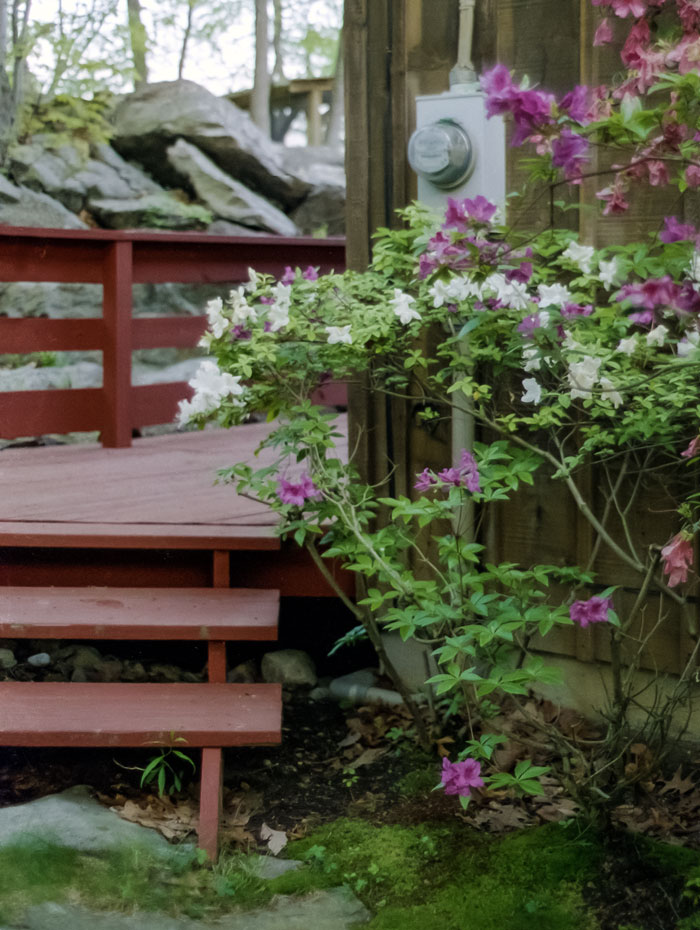
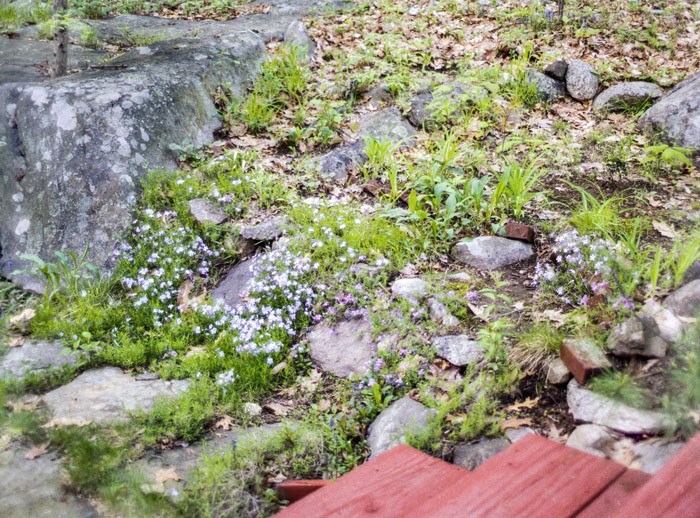
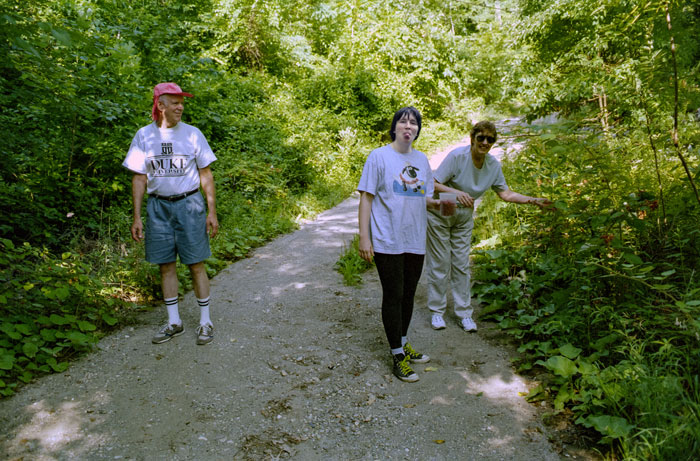
Picking raspberries on Upland Drive, Garrison (composite)
Lee and Nancy visited from Kansas on our second summer in the house. They joined us berry-picking on the one-lane dirt road that ran up past our new home. We would joke that it was the worst road in Putnam County, which it may have been; it was also private, which meant the county wouldn't touch it. Steep grades in several spots meant they would never assume ownership, either; it would have taken a great deal of taxpayer cash (and probably some land seizures) to smooth out the out-of-code grades with switchbacks. During ice storms some folks on the road would park at bottom and walk up. We paid for our own plowing and maintenance, and some of the thirteen households on the road refused to pay.
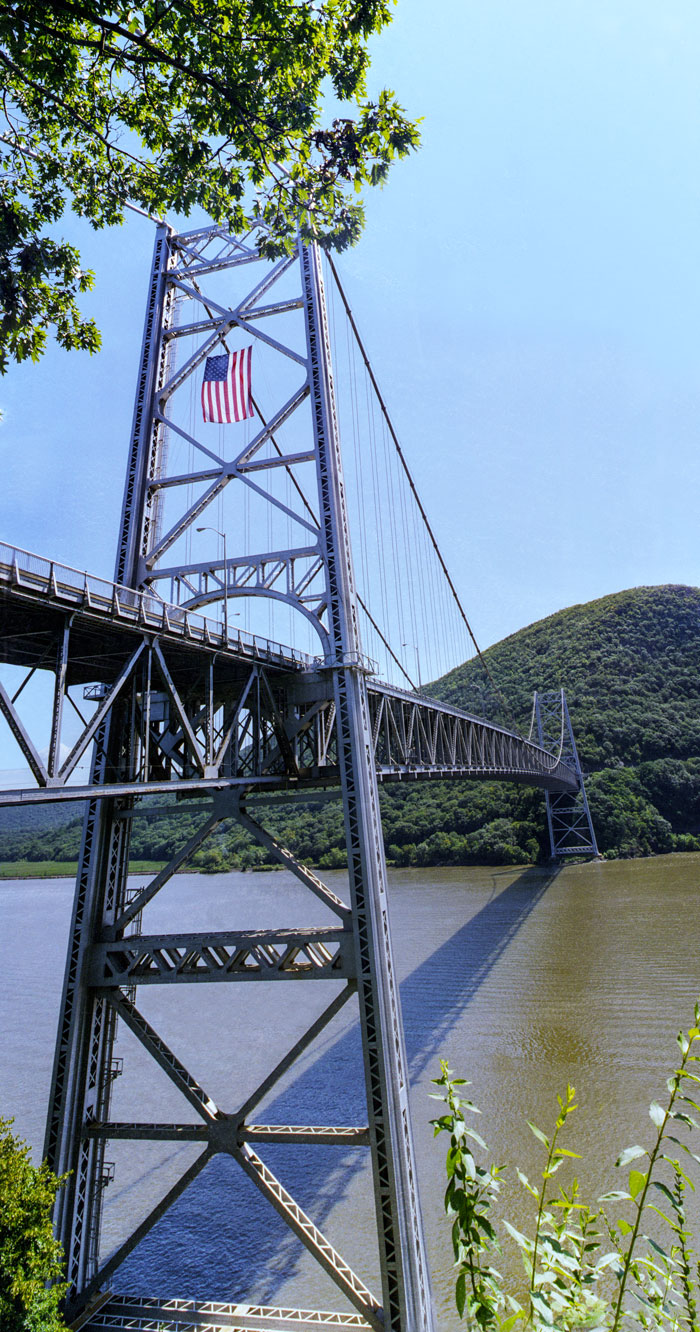

Complete Idiot's Guide Business Card & Stationary Maker: great for small offices and home offices!






